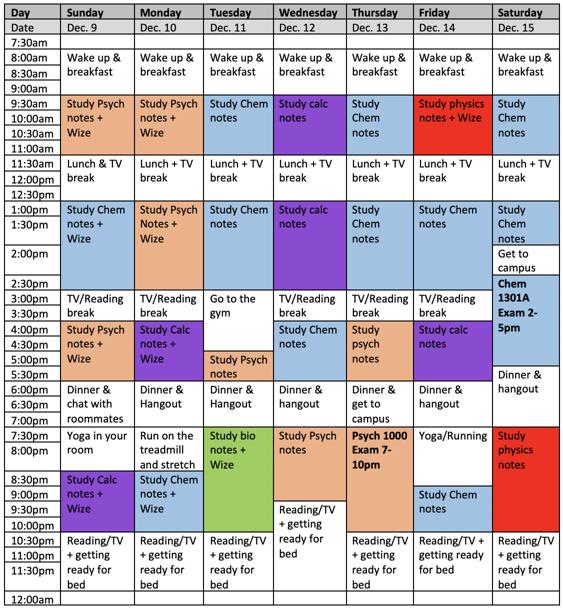How to Build an Effective Study Schedule
Creating an Effective Study Schedule: A Step-by-Step Guide

Frequently Asked Questions
Assess the difficulty of each subject along with your current understanding. Give more time to subjects you find challenging and balance it with those you are confident in.
Use planners, apps like Google Calendar, or even a simple wall calendar to visually organize your study schedule. Smartphone apps can send reminders to keep you on track.
Step by Step Guide
1
Determine Your Goals
Begin by defining your academic goals. What do you want to accomplish with your studies? List down your short-term and long-term goals, clarifying topics you need to cover or exams you need to prepare for.
2
Assess Your Current Commitments
Evaluate your current schedule. Take note of your classes, work, extracurricular activities, and personal commitments. This assessment will help you identify the free time slots available for studying.
3
Choose Your Study Methods
Identify effective study methods that work for you, such as summarizing notes, practicing past papers, or forming study groups. This will help in creating a schedule that utilizes your preferred learning techniques.
4
Break Down Your Syllabus
Divide your syllabus into manageable sections. Create a checklist of topics or chapters that need to be covered and prioritize them based on deadlines and importance.
5
Allocate Study Time Slots
Using the free time slots you identified earlier, allocate specific time slots for each subject or topic. Make sure to consider your most productive times of the day while doing so.
6
Include Breaks and Downtime
Don’t forget to include short breaks and downtime in your study schedule. This will help in maintaining your energy levels and keeping your mind fresh. Plan for 5-10 minute breaks for every hour of study.
7
Create a Visual Schedule
Create a visual representation of your study schedule using calendars, planners or apps. Highlighting study periods in different colors can make it visually appealing and easy to follow.
8
Review and Adjust Regularly
Regularly review your study schedule to assess its effectiveness. Adjust timings or methods as necessary based on your progress and upcoming responsibilities.
9
Stay Committed and Motivated
Stay committed to your schedule. Use incentives, such as rewards for reaching study milestones, to keep your motivation high.
10
Seek Support if Needed
Don’t hesitate to seek help or support from classmates, teachers, or tutors if you're struggling with certain topics. They may offer insights that can enhance your understanding.








